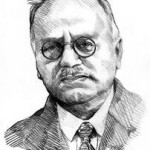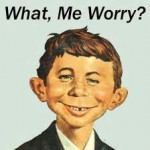
Previously I’ve written about Recovery International, founded by psychiatrist Abraham Low in the 1940s in Chicago, Illinois. Dr. Low initiated a revolutionary brand of treatment that we now call cognitive therapy: by changing one’s thoughts, one could change troublesome feelings and through practice attain better mental health. Dr. Low used the word apprenticeship to denote […]
By:
William Van Ornum, Ph.D.

Since the Supplement to the U.S. Surgeon General’s Report Mental Health: Culture, Race, and Ethnicity—A Supplement to Mental Health: A Report of the Surgeon General, several events have occurred. These, say Lonnie R. Snowden, have established a national commitment to understanding African American-White American treatment disparities, their consequences, and opportunities for their reduction. Snowden’s article, […]
By:
William Van Ornum, Ph.D.

Although the therapeutic dimension of sports on the highest level, which is usually the professional, is well accepted, players are often assessed—or worse, judged—by club executives and fans alike based on issues or “characteristics” of mental health. This can be unfortunate. As the Major League Baseball Cy Young (for pitchers) and Most Valuable Player Awards […]
By:
Evander Lomke
Steven R, Lopez, Concepcion Barrio and colleagues address an important cultural topic in the October 2012 edition of American Psychologist: From Documenting to Eliminating Disparities in Mental Health Care for Latinos. The U.S. Surgeon General’s report from 2012—Mental Health: Culture, Race and Ethnicity—A Supplement to Mental Health: Report of the Surgeon General—documents significant disparities in […]
By:
William Van Ornum, Ph.D.
“Asian Mental Health” is a timely and important article by Stanley Sue and his colleagues, just published in the October 2012 edition of American Psychologist. This is one of three articles recently written that address mental health disparities occurring in cultural groups. Ten years ago the U.S. Surgeon General wrote a report Mental Health: Culture, […]
By:
William Van Ornum, Ph.D.
American Mental Health Foundation Annual Report November 1, 2011, to October 31, 2012 This is the second Annual Report on The American Mental Health Foundation (AMHF), a research organization founded in 1924, incorporated in New York State December 31, 1954. (Click here for the first annual report, November 2011.) Vision Statement: on the homepage of […]
By:
Evander Lomke

One of the goals of AMHF is to keep in everyone’s awareness those therapeutic approaches that are important either for their historical value or for practical techniques still helpful. Of course, we seek to encourage the latest empirical studies and cognitive therapies, such as the study on prevention of psychosis we are funding at Astor […]
By:
William Van Ornum, Ph.D.

A miserable marriage is certainly a mental health issue. Hollywood has profiled many of these “stuck” relationships—from those who have made lifetime vows to those with other but important commitments. Witness the continuum from Who’s Afraid of Virginia Wolf? to “The Brady Bunch.” Now, we have Tommy Lee Jones and Meryl Streep—at a time when […]
By:
William Van Ornum, Ph.D.
The AMHF grant to Astor Services for Children—to identify and evaluate interventions that help adolescents at risk for suicide and psychosis, and to create scientifically supported guidelines—supports the exact kind of empirical investigation recommended by American Psychological Association President Suzanne Bennett Johnson. In the President’s Column of the July August 2012 APA Monitor (American Psychological […]
By:
William Van Ornum, Ph.D.
Susannah Wood, Arie Greenleaf, and Lisa Thompson-Gillespie, in the August 2012 issue of Counseling Today (a publication of the American Counseling Association), cite Military Officer magazine: there are two-million children in United States military families today. Studies conducted by the National Military Family Association offers this information: students from military households encounter many challenges but […]
By:
William Van Ornum, Ph.D.
A few months ago I wrote about Marsha Linehan and Dialectical Behavior Therapy here on this blog. It is a creative and empirically-supported treatment that combines cognitive and behavior therapy as well as wisdom from philosophical and religious traditions. Last week, at the 120th Annual Meeting of the American Psychological Association in Orlando, Florida, Linehan […]
By:
William Van Ornum, Ph.D.

Edward Hallowell and John Ratey have published a follow-up to their successful book Driven to Distraction. On a hopeful note, it is titled Delivered from Distraction. The first book was written in the 1990s. It contains much good advice on ADHD: diagnosis, medications, telling it apart from other conditions as well as finding it in […]
By:
William Van Ornum, Ph.D.

On June 22 it was announced that Judith Wallerstein, 90, had died. Wallerstein is known for a 25-year longitudinal study about the effects of divorce on children. Her study examined the psychological impact of divorce on children, and her scientific findings cautioned against the too-ready “advice” of many mental-health professionals that divorce could be a […]
By:
William Van Ornum, Ph.D.

Marsha Linehan, always a leader in the psychological profession for her work with people with borderline personality disorder, became well known to the public when the New York Times featured a front-page article on her. In this, Linehan revealed her own personal struggle with borderline personality disorder as a teen. She was hospitalized around the […]
By:
William Van Ornum, Ph.D.

Too many times we view medication and psychological therapies as either/or treatments. Many times people will try to avoid any medication for even a severe mental health problem. Their reasons are always worth noting: perhaps there is a realistic fear of side effects, or a desire to work things out in a trusting relationship. Perhaps […]
By:
William Van Ornum, Ph.D.

There’s something about the Deep South that inspires the writing of great literature (think William Faulkner, Tennessee Williams, Truman Capote) more than, for example, North Dakota. Likewise, we think of “the grand diagnoses” in psychiatry more than we do, say, about Generalized Anxiety Disorder. Prince of Tides is a 1991 movie capturing the lowland beauty […]
By:
William Van Ornum, Ph.D.

One of the anxiety disorders classified in the DSM-IV-TR is Social Phobia. This can be more deleterious than, say a snake phobia—a social phobia can cause withdrawal from so many important events in one’s life. Social phobia can include fear and avoidance of social situations because of fear of scrutiny and judgment. The person recognizes […]
By:
William Van Ornum, Ph.D.

What Freud called “free floating anxiety” is now known in the DSM-IV TR as Generalized Anxiety Disorder. It’s excessive worry that can’t be controlled by the person who is experiencing it. Symptoms may include restlessness, fatigue, difficulty concentrating, irritability, tension, and sleep disturbances; when several of these reach the point of interfering with an important […]
By:
William Van Ornum, Ph.D.

Lynne Shallcross, writing in the January 2012 issue of Counseling Today (a journal of the American Counseling Association), reports on research from the Stanford Forgiveness Project that shows that learning to forgive others lessens the amount of hurt, anger, and depression that people experience. She notes the work of Frederick Luskin, a director of the […]
By:
William Van Ornum, Ph.D.

It is difficult for the board members of AMHF to believe that today is seven years since the passing of long-time director of research Dr. Stefan de Schill. De Schill was one of the foremost proponents of group therapy in North America. He recognized that psychotherapy—particularly of the modality he spent a lifetime studying and […]
By:
Evander Lomke
Elaine Aron pioneered new ground over a decade ago when she wrote the trade book The Highly Sensitive Person; this was followed up by a workbook, a book on parenting children who are highly sensitive, and even a primer for therapists. Highly Sensitive Persons (HSP), in her view (which incorporates findings from important developmental psychologists […]
By:
William Van Ornum, Ph.D.

Of the twenty-one films referenced in this blog, Don Juan DeMarco is the first I will discuss. Psychiatrist Jack Mickler (Marlon Brando) dissuades a would-be suicide—a 21-year-old, costumed like Zorro claiming he is Don Juan (Johnny Depp)—is held for a ten-day review in a mental institution. Mickler, who is about to retire, insists on doing […]
By:
Evander Lomke

Many remember Curt Schilling for his postseason successes with the Boston Red Sox, including one in which he pitched while in pain and with a bloodied sock. Schilling recently announced that he has formed his own video-game company, which will be releasing a fantasy-oriented game for gamers. The story behind the story here is that […]
By:
William Van Ornum, Ph.D.

In the recent yearly “Reports of the Association” issue of the American Psychologist (December 2011), the American Psychological Association announced “Practice Guidelines Regarding Psychologists’ Involvement in Pharmacological Issues.” This report notes several factors that will make psychologists more involved in medication-management issues. One survey noted that the number of Americans using antidepressants increased from 6.7 […]
By:
William Van Ornum, Ph.D.
The December 22, 2011, edition of the New York Times brings out another article on the problems and abuses in New York State public groups homes where developmentally disabled persons reside. It is important to note that the focus of the NYT articles has been on “public” rather than private group homes. Many of the […]
By:
William Van Ornum, Ph.D.

In most cases psychiatric drugs are not valuable commodities on the street: antipsychotics and antidepressants with names such as Thorazine, Haldol, Resperidal, Tofranil, SSRIs, Wellbutrin, Abilify, Lithium, and others generally must build up a therapeutic dosage in the bloodstream to become effective. There is no immediate “rush” or feeling of euphoria. In acute-psychiatric illness, a […]
By:
William Van Ornum, Ph.D.

I came across this memoir (with its compelling title, somewhat reminiscent of the work of Clarice Lispector) upon learning its author, Carol Hebald, had been awarded (six years before) the same fellowship I had been given as an undergraduate. The foreword is by iconoclast Thomas Stephen Szasz, known for his anti-traditional “anti-views” of psychotherapy. In […]
By:
Evander Lomke

What are mental bears? A person who is asked NOT to think aloud about a white bear will more often than not mention this same white bear: at least once a minute. So “white bears” have come to mean all sorts of unwanted thoughts that cause annoyance to even extreme frustration to those who experience […]
By:
William Van Ornum, Ph.D.

AMHF attended the 51st Annual Meeting of the New England Psychological Association (NEPA), held October 28-29 at Fairfield University in Fairfield, Connecticut. After a wonderful dinner, hosted by Drs. Robin Crabtree and Susan Franzosa, deans at Fairfield, participants heard child-development expert Dr. James Garbarino speak of “Children and the Dark Side of Human Experience: Confronting […]
By:
William Van Ornum, Ph.D.

On Friday, October 28, 2011, AMHF attended the 17th Annual Meeting of the Northeast Conference for Teachers of Psychology. This is a group of psychologists, who teach in colleges and universities, dedicated to improving their teaching of undergraduates and graduates. Participants of the group come from a wide range of specialties and interests including developmental, […]
By:
William Van Ornum, Ph.D.
« Previous
1
2
3
4
5
Next »






























 Host Companion
Host Companion